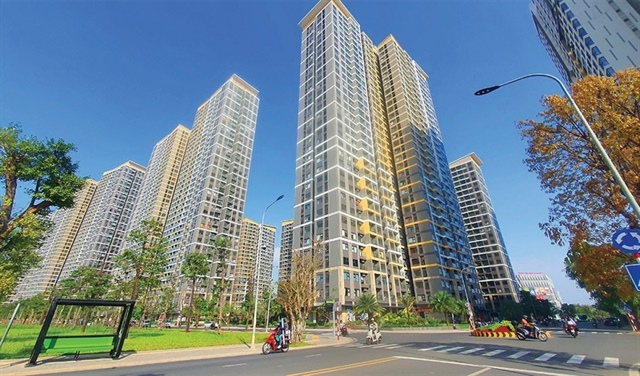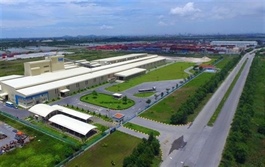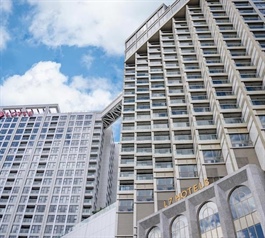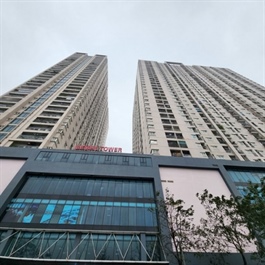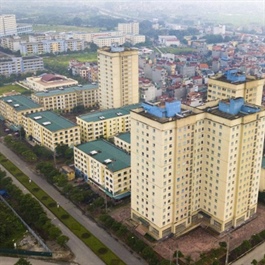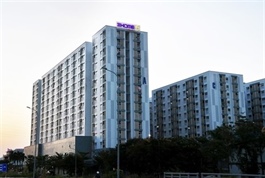Social housing buyers and renters are hesitant to borrow from preferential credit package
Social housing buyers and renters are hesitant to borrow from preferential credit package
Social housing buyers and renters are wary of high-interest rates of loans under the VNĐ125 trillion package for developing social housing and worker housing projects, the Vietnam Chamber of Commerce and Industry (VCCI) has warned.
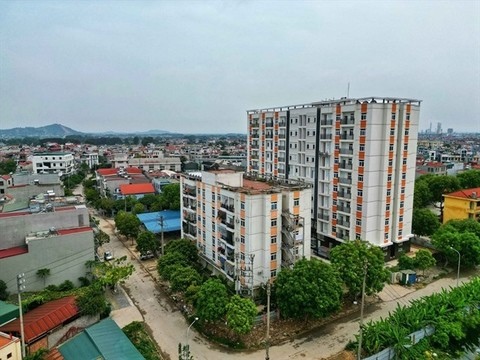
Social housing buildings in Bắc Giang Province. — VNA/VNS Photo |
According to the HCM City Real Estate Association (HoREA)'s report sent to the VCCI, this concern is about high-interest rates of preferential loans under this credit package for social housing buyers and renters.
The preferential interest rate is at a high level of 7.5 per cent per year for a five-year loan. In addition, this interest rate is adjusted every six months and after the preferential period, the bank will apply negotiable interest rates that are surely higher than the preferential rate.
Therefore, the association has proposed that the State Bank of Việt Nam expand two more subjects to receive loans for the VNĐ125 trillion package. They include buyers of commercial housing priced at VNĐ3.5 billion per unit or less and owners who borrow to build new or renovate/upgrade houses for workers to rent.
Lê Hoàng Châu, HoREA's chairman, recommended that the Ministry of Construction continue to restore the VNĐ110 trillion credit package with an interest rate of 4.8-5 per cent per year and the loan term of maximum 25 years that the ministry proposed last year to implement a programme on developing at least one million social housing units in the 2021-30 period.
At the same time, in the draft decree on social housing development and management, it is necessary to increase the norm profit to 15 per cent, instead of 10 per cent as before, for enterprises creating their land funds.
In addition, businesses can also mortgage their social housing projects when borrowing preferential capital, including from the VNĐ125 trillion package. At present, investors have to mortgage other assets to borrow loans from the credit packages, affecting the building progress of the project, Châu said.
The association has also proposed a reduction of 70 per cent in value added tax and corporate income tax to encourage the development of many projects of social housing for lease.
After one year of providing credit from the VNĐ120 trillion credit package for social housing development, the disbursement is still very low at VNĐ955 billion (US$39.8 million), according to the State Bank of Vietnam (SBV). This disbursement has included VNĐ415 billion for six new projects and VNĐ540 million for new home buyers at two projects.
Since July 2023 up to now, the localities have had 68 eligible projects to take loans from this programme. About 28 provinces and cities have had lists of social housing, worker housing and apartment renovation projects.
The VNĐ120 trillion supportive package was kicked off in April last year which aimed to provide loans with preferential rates at 1.5 -2 per cent lower than the medium and long-term lending rates in the market to developers of social housing projects and home buyers, following the Government’s Resolution No 33/NQ-CP dated March 11 regarding solutions to remove difficulties and promote the safe, healthy and sustainable development of the real estate market.
Four State-owned commercial banks join in the disbursement of the package which will run until 2030. Recently, there has been one more bank to joining this package, increasing the package value to VNĐ125 trillion.
Meanwhile, some other projects still encounter legal problems, site clearance and change of land use purposes. Those factors have made banks not grant loans from this package to project investors.
For home buyers, the regulations on beneficiaries are still complicated, making it difficult for them to get preferential loans.
To attract businesses' investment in social housing projects, Trần Ngọc Anh, deputy general director of Viglacera, said that regulations on subjects and conditions of buying social housing are still limited, causing many enterprises to have difficulty in doing this business.
Therefore, it is necessary to soon come the amended Housing Law into effect and promulgate a decree on social housing to create favourable conditions for social housing buyers and renters in accessing to social housing products.
At the same time, some conditions for social housing buyers are needed to loosen.
In addition, the State needs to soon create a land fund developing social housing to attract businesses to participate in auctions. When the supply of social housing increases, low-income people will have more chances to buy a house, Ngọc Anh said.
Việt Nam targets to build at least one million social housing apartments by 2030.






